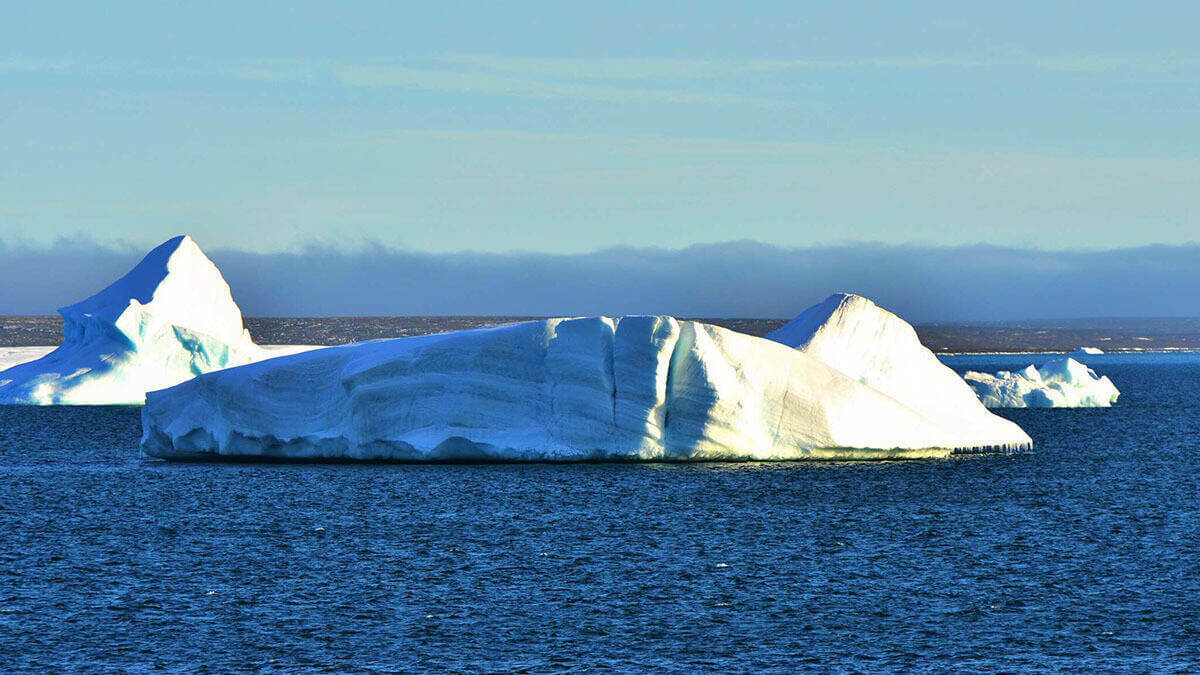Does Russia stand to benefit from climate change?

New research examines the effect of climate change on Russia and the country’s role in addressing global environmental challenges
“There’s a narrative out there about climate change that says there are winners and losers. Even if most of the planet might lose from the changing climate, certain industries and countries stand to benefit. And Russia is usually at the tip of people’s tongues, with Russian officials even making the claim that Russia is a potential winner.”
This portrayal, described by Debra Javeline, associate professor of political science at the University of Notre Dame and lead author on the recently published study “Russia in a changing climate,” was debated by her 16 co-authors — all Russia specialists and members of the Program on New Approaches to Research and Security in Eurasia (PONARS), a multinational cohort of academics from North America, Europe and post-soviet Eurasia.

The PONARS scholars, including Susanne Wengle, also an associate professor of political science at Notre Dame, studied the effects of climate change on Russia and Russia’s role in global efforts to combat climate change or obstruct climate action.
“We asked ourselves,” Javeline said of her research team, “does Russia stand to benefit from climate change? Are the claims made by the Russian government officials accurate in that it does benefit them?”
The PONARS network includes social scientists of different disciplinary backgrounds, allowing each co-author to contribute analysis of Russia in their respective fields, including agriculture, international affairs, the changing Arctic, public health, civil society and governance.
Drawing on their collective expertise and a comprehensive literature review, the researchers found that Russia is already suffering from a variety of climate change impacts — despite the government’s positive spin — and is ill-prepared to mitigate or adapt to those climate impacts. And, as the rest of the world transitions to renewable energy sources, Russia’s fossil-fuel-dependent government is not willing or ready to make alternative plans for the country, changes that could potentially benefit the whole of their society.
“The future of Russia is politically and economically interdependent with the future of the climate,” she said. “If we have any hope of seeing a peaceful Russia that can rejoin the international community with a more responsive government, then we can’t talk about one without the other.”
But while Russia continues to wage a carbon-intensive war in Ukraine after a full two years, it remains “increasingly isolated from the international community and its efforts to reduce greenhouse gas emissions,” the researchers wrote.
The cause for concern lies in the fact that not only is Russia considered the world’s largest country, occupying more than half the Arctic Ocean coastline, but it is also warming four times faster than Earth as a whole and is a primary emitter of greenhouse gases, according to the PONARS study.

Environmental impacts already occurring in Russia include flooding, heat waves, drought and wildfires that affect not only communities, but agriculture, forestry and water resources as well. “Russia is one of the world’s most important producers and exporters of grains,” said Wengle, an expert on Russian agriculture. “What this means is that the effects of climate change on Russian farms are a concern not only for Russians, but for everyone concerned with global markets for commodity crops and global food security.”
Global warming has had a huge influence on Russia’s permafrost, which is now thawing at alarming rates. What was once considered permanently frozen, stable ground is now defrosting, shifting and causing tremendous damage. The study pointed to increased flooding, landslides, caving or sinking of ground that supports existing infrastructures — resulting in cracked foundations and compromised shelters.
“Some Russian cities in high-latitude regions report infrastructure damage from thawing permafrost and soil instability for up to 80 percent of buildings and for pipelines,” the researchers discovered.
Russian leadership, however, interprets these climate impacts self-servingly and encourages its citizens to accept them as benefits, according to the PONARS scholars. For example, while Russian scientists warn about extreme temperatures and decreased Arctic sea ice, the Russian government touts a year-round Arctic sea route and a more livable climate overall. And although Russian climatologists study the effect of climate change, there are limited policies in place to reduce the vulnerability of some regions to climate impacts, and generally little adaptation planning and even less implementation of actual adaptations.
The researchers found that there is also a real climate leadership deficit in Russia and an absence of commitment to mitigate and adapt. “No top political leader champions a climate agenda,” they proclaimed. “Those in the highest positions of power demonstrate silence or denial.”
Furthermore, Russia’s full-scale invasion of Ukraine has exacerbated the climate emergency. “The humanitarian disaster is of the utmost importance — the number of deaths and structures that were destroyed — but the collateral damage is intense destruction to the atmosphere,” Javeline noted.
The war has brought irreparable damage to the global climate from increased military emissions, which the researchers explain as taking the form of “potentially several million extra tons of carbon dioxide equivalent.” Military operations have all had a harmful effect on the environment by adding toxic chemicals and hazardous waste into the air and water supplies.
The PONARS study serves as a framework to identify gaps in research. In particular, the scientists believe that more research is needed on the political dimensions of Russia in our changing climate — namely, taking a closer look at the country’s centralized political system and how it handles policy challenges related to climate change.
Javeline and Wengle added that the researchers hope to improve understanding of climate issues affecting Russia so that when Russian leadership does decide to acknowledge the country’s precarious position in a changing climate, there will be a reliable base of knowledge to assist them with efforts to mitigate and adapt.
Contact: Tracy DeStazio, associate director of media relations, 574-631-9958 or tdestazi@nd.edu
Latest Colleges & Schools
- Prioritizing prenatal care may decrease low birth weight outcomes in The Gambia, Notre Dame research findsA new study co-authored by University of Notre Dame researchers highlights the importance of prenatal care for improving the health of mothers and newborns, providing evidence that can inform policy.
- Partial peace deals may facilitate comprehensive accords, offering roadmap for policymakers, practitionersPartial peace agreements — deals that address targeted issues on the way to larger comprehensive accords — could provide a blueprint for peacebuilding policymakers and practitioners, according to new University of Notre Dame research.
- Notre Dame Law School launches new Veterans Law ClinicNotre Dame Law School is launching a new Veterans Law Clinic, dedicated to providing free legal assistance to U.S. military veterans in matters such as disability claims and appeals.
- City of Gary and Notre Dame’s Housing and Community Regeneration Initiative announce vision and action plan for downtown GaryThe City of Gary and the University of Notre Dame School of Architecture’s Housing and Community Regeneration Initiative announced a “Vision and Action Plan” for downtown Gary during a news conference Tuesday (May 27). The final report serves as a roadmap for Gary’s leadership to follow to reestablish the city’s building culture.
- Notre Dame Executive MBA offers scholarships to area leadersMichiana Forty under 40 honorees can receive $30,000 toward tuition for the Notre Dame EMBA program.
- Kenneth Scheve appointed dean of the University of Notre Dame’s College of Arts and LettersKenneth Scheve, the Dean Acheson Professor of Political Science and Global Affairs and the dean of social science at Yale University, has been appointed the I.A. O’Shaughnessy Dean of the College of Arts and Letters by University of Notre Dame President Rev. Robert A. Dowd, C.S.C. Scheve, who will also hold a tenured faculty position in the Department of Political Science, begins a five-year term as dean on July 1.













